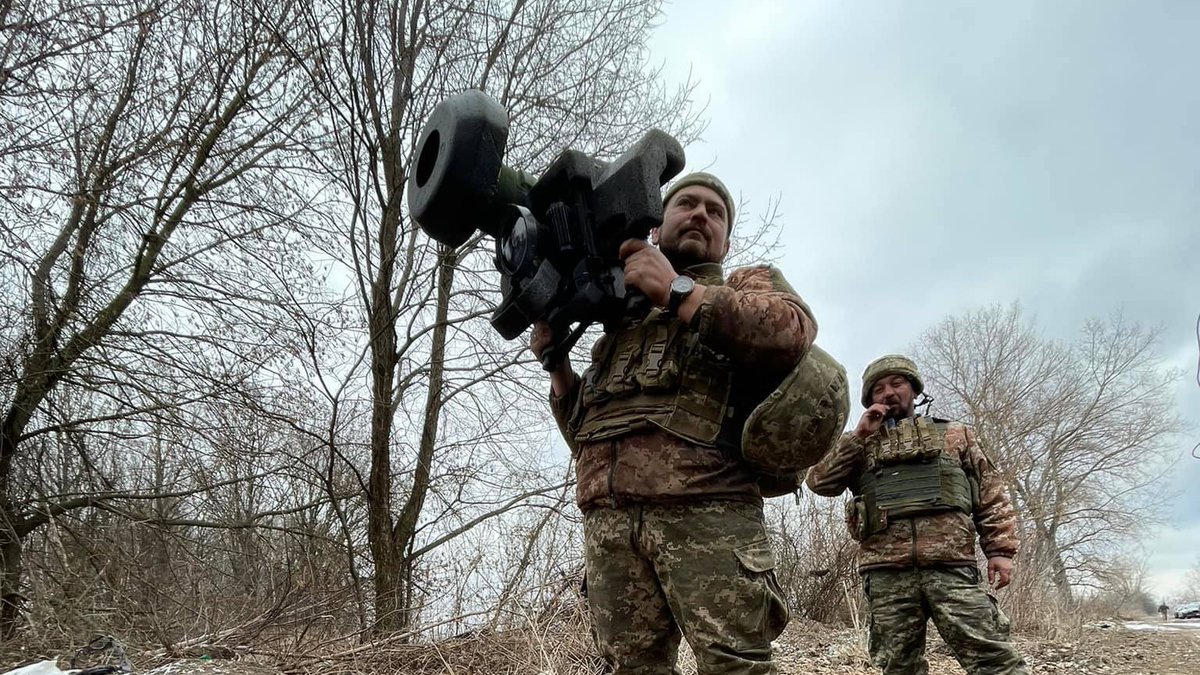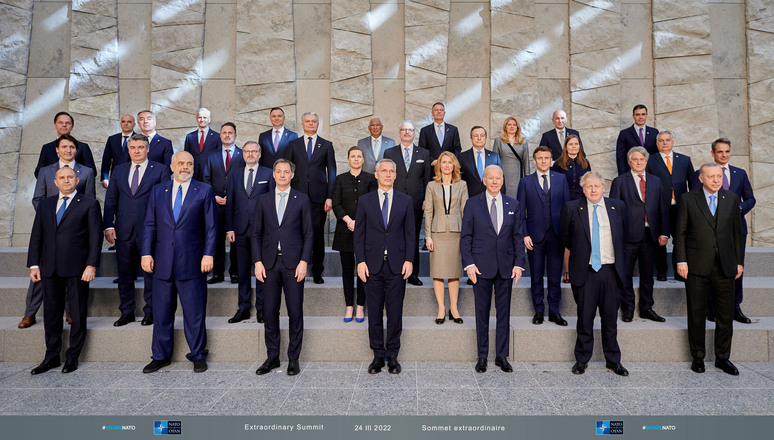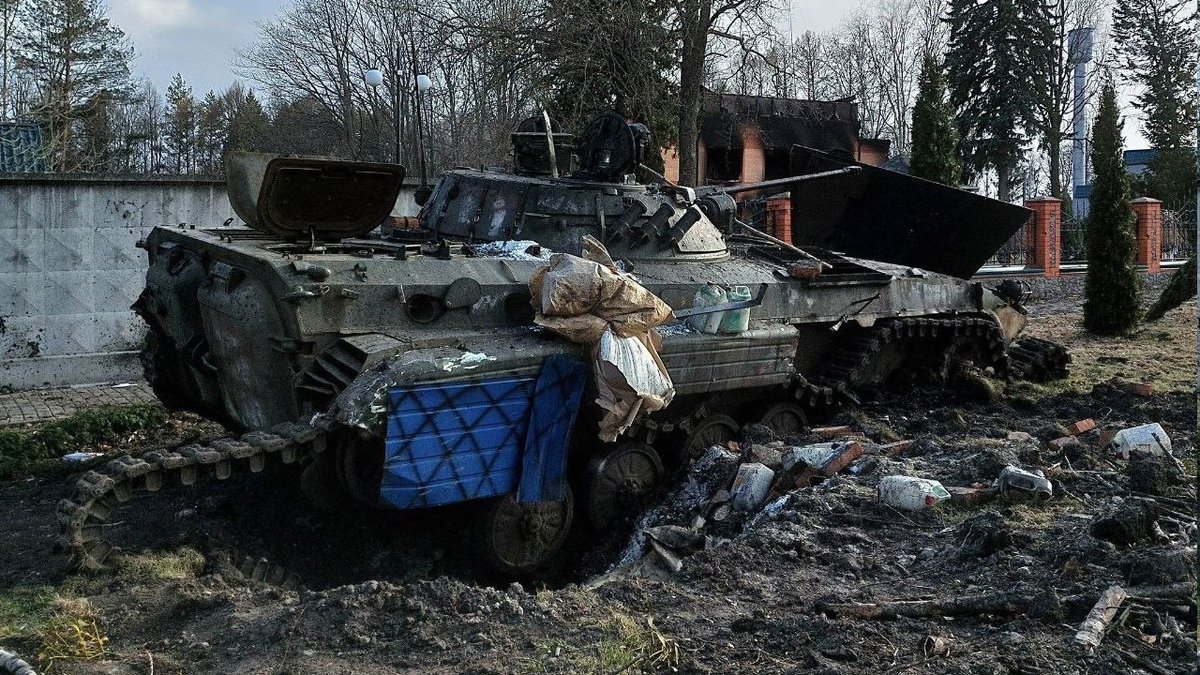
Five weeks have passed since the beginning of the Russian invasion of #Ukraine. Today I examine why #strategy matters in war, and how bad Russian strategy has been the root of all their military failures in their invasion of Ukraine. 1/25 (Image - @UAWeapons) 

2/25 As always, a shout out to those reporting on the Russian invasion. This includes @KofmanMichael @maxseddon @IAPonomarenko @RALee85 @shashj @DanLamothe @ikhurshudyan @IanPannell @ChristopherJM @KyivPost among others. Please follow them.
3/25 Strategy is a word for which there is no single, agreed definition. It is also a word that is frequently misused to describe corporate and government documents that are really just vision statements or public affairs statements.
4/25 Hew Strachan has described strategy as a word “used by governments to describe peacetime policies more than by armies to shape wars” and that has “gained in breadth but has forfeited conceptual clarity.”
5/25 Strategy in the 1800s and early 1900s was almost an entirely military affair. But that is no longer the case. After World War I, strategy became a national endeavour, not just military.
6/25 Importantly, military strategy must align with desired political outcomes. This shapes how military strategies are developed, executed, and adapted.
7/25 This is an important concept. We can see how desired political outcomes, based on poor assumptions, has bad outcomes for Russia's military strategy and its implementation in #Ukraine.
8/25 The ‘delusional strategy’ of Putin, described by @lawdavf in this post, has proved a terrible guide for military and information operations in Ukraine. samf.substack.com/p/the-fight-fo…
9/25 The Russian strategic assumptions – Ukraine as a non-state, that Ukraine would rapidly surrender and that the west would not intervene – have all been proven wrong in the past month. Assumptions matter in strategy, and the Russians failed here.
10/25 Russian assumptions about a rapid Ukrainian collapse underpinned their initial military strategy. Putin’s desired political endstate – a compliant Ukraine - relied on a decisive and quick military victory. The Ukrainians missed this memo. (Image - @IAPonomarenko) 

11/25 Russian military planning, based on these bad strategic assumptions, biased towards combat units around the borders of Ukraine. The aim of showing off this combat power was to cower the Ukrainians into an accommodation.
12/25 Because of the Russian bias towards combat units during the build-up phase, tactical & operational logistic systems were not deployed to provide anything other than the most basic life support for units in temporary field garrisons.
13/25 Once offensive ops began, consumption of fuel, ammunition, precision munitions, food, cold weather equipment and other natures rapidly accelerated. The Russian military logistic system collapsed because it was not supposed to be used.
14/25 Because its strategy relied on quick Ukrainian capitulation, Russia also committed too small a force if it had to fight. It was tactical as well as a strategic risk.
15/25 The assumption of a quick capitulation also meant that the Russians did not put in place an operational mechanism to coordinate the forces that had deployed to Ukraine’s northern, eastern and southern borders during the build up.
16/25 Military organisations apply operational art to sequence and orchestrate tactical actions to ensure they align with strategic objectives. In most western military organisations, this is done by standing joint organisations, or by temporary joint task forces.
17/25 Importantly, much of the prioritization for allocation of forces, logistic support, intelligence, transport, and interdomain collaboration is undertaken here. This ‘operational level’ is also normally joint rather than service-oriented.
18/25 The lack of this joint operational commander, once again stemming from the flawed Russian theory of rapid victory, has meant that there have been five separate wars being waged by the Russians. The eastern, northern and southern ground wars, the air war and info-war.
19/25 It has meant that weighting effort towards a main effort and prioritisation of scarce operational assets (strike, EW, logistics, etc) has been difficult, if not impossible.
20/25 The next strategic assumption, upon which Putin’s thinking and Russian military operations have been based, is that #Ukraine is not a real country. As we have seen in the past month, the unity and sacrifice of the Ukrainian people disprove this as a fantasy.
21/25 The final flawed foundation for Russian military strategy was that the West would stand by and offer minimal assistance to the Ukrainians. This thinking was based on Russia’s experience in Syria & Crimea, as well as the economic ties between Russia and European nations.
22/25 This idea was disproven almost from the beginning of the Russian invasion. A mix of economic sanctions, information warfare, pre-bunking, humanitarian assistance and military aid have all been of assistance to the Ukrainians in the defence of their nation. 

23/25 As the Russians have rediscovered in the past 5 weeks, good strategy (and assumptions) is critical to effective military operations. Effective strategic thinking is more important than tactical excellence (ask the Germans after two world wars). warontherocks.com/2015/08/dealin…
24/25 Alan Millett & Williamson Murray have noted that “it is more important to make correct decisions at the political and strategic level than it is at the operational or tactical level. Mistakes in operations and tactics can be corrected, but strategic mistakes live forever.”
25/25 For this reason, strategic effectiveness – getting the political outcomes & supporting strategy right - is of profound importance to twenty-first-century nations & military institutions. Russia’s Ukraine debacle is a case study of how not to do 21st century #strategy. End. 

• • •
Missing some Tweet in this thread? You can try to
force a refresh









